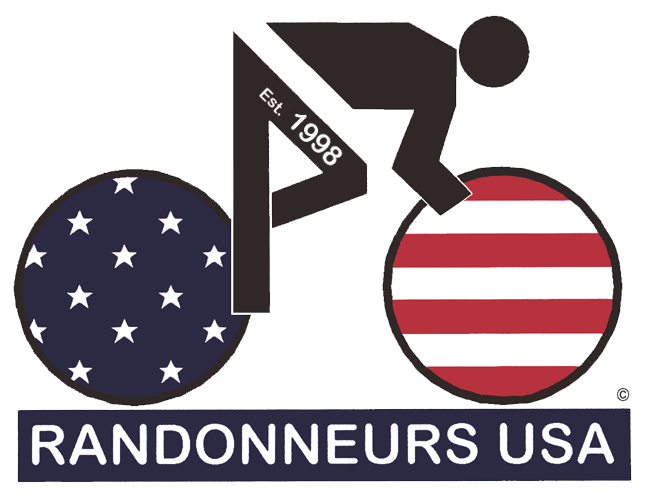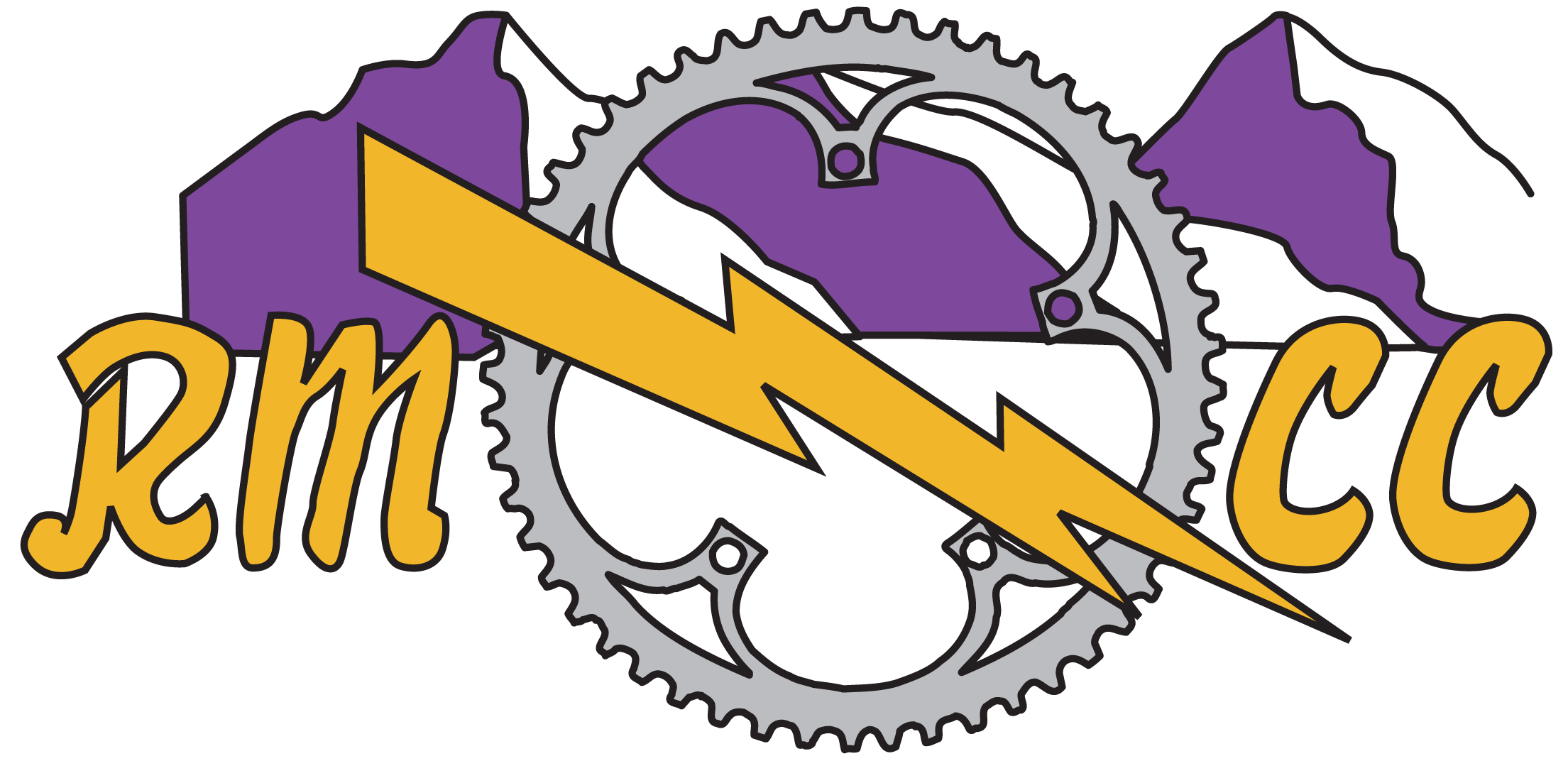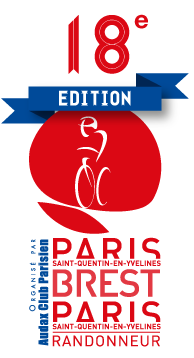Flight Bookings —
If you are taking your bike with you on the flight, consider the total cost of your ticket plus the bike's. An economical flight for you may make up for hefty bike fees or vice versa. You also may be considering a jaunt, say, in Provence before PBP or in Iceland afterwards, altering the whole complexion of your flight plan. Finally, remember that inspection is the day before the earlier starts, so you need to be there (with your bike) for that.
Bike Transport —
Many of us take our bike on our flight over. If you do, think about adding a buffer day in case your bike is delayed. Or you could ship your bike ahead of time - but check out the rates. Or you could rent one there (few riders' preference).
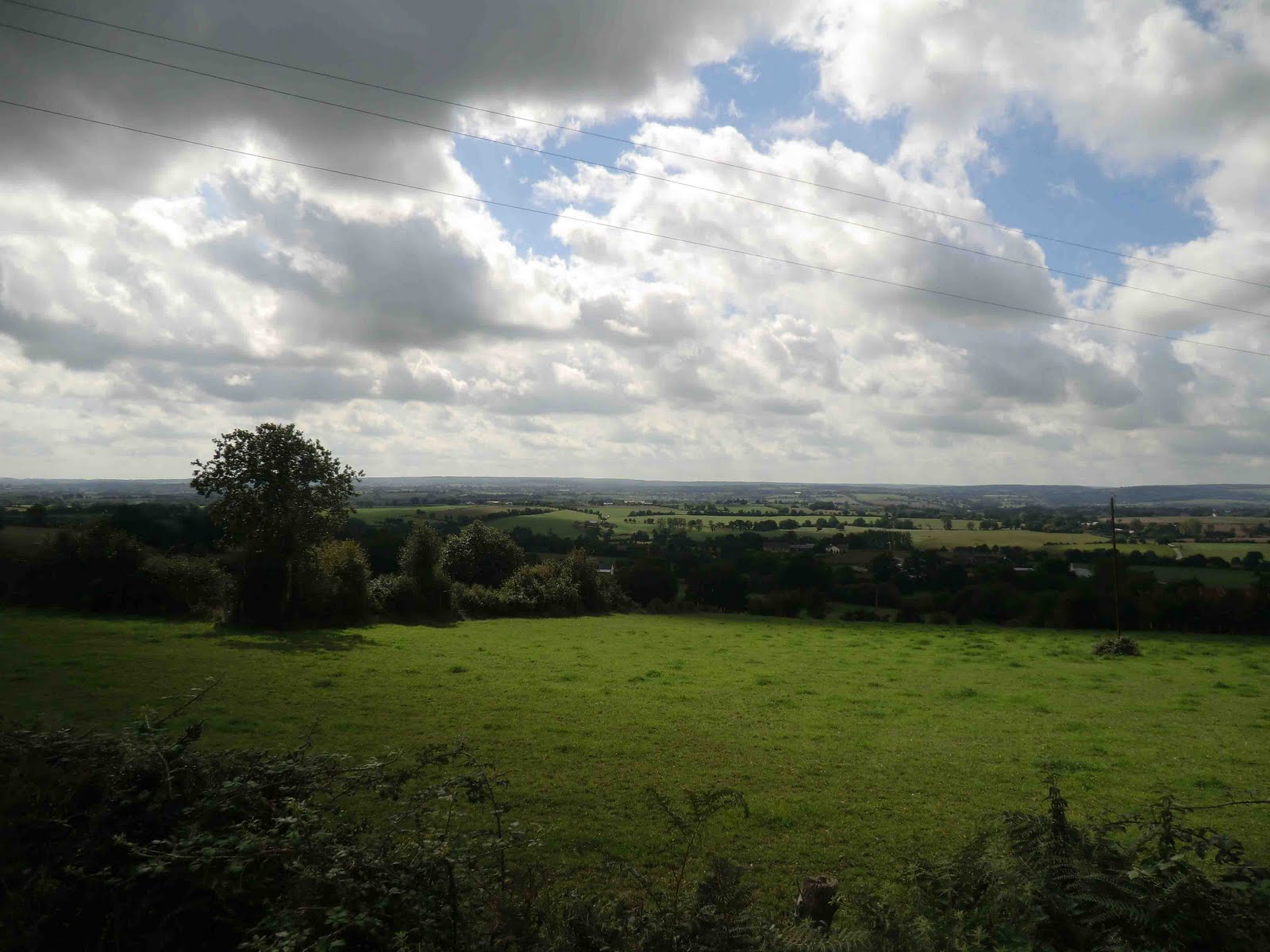 Most of the route is through rustic countryside, like this near Villaines-la-Juhel.
Most of the route is through rustic countryside, like this near Villaines-la-Juhel.Between Airport and PBP Start/Finish —
If you fly into Paris, you will probably land at Charles de Gaulle airport (CDG). This is NE of Paris, about 33 driving miles' travel to the PBP start in St. Quentin-en-Yvelines (SW of Paris). For historical reasons, the rail and metro system is not well suited to transiting Paris, but it can be done. Or you could take a taxi. There are also tour services. Or you could rent a car if that fits in your larger plans.
Lodging Near PBP Start/Finish —
There are a number of hotels within a mile of the start/finish in St. Quentin-en-Yvelines. Some, such as the Campanile and Mercure, are within walking distance of shops and restaurants, and the RER train going into Paris. Some people also stay further afield, such as in Versailles or even in Paris, if they have a convenient way to get to/from the ride start. The hotels near the ride start have made provisions for storing many bikes and bike boxes, and you will get to interact with fellow riders, make plans for checkout rides, etc. Naturally, these hotels can fill up quickly, and tour companies have room blocks.
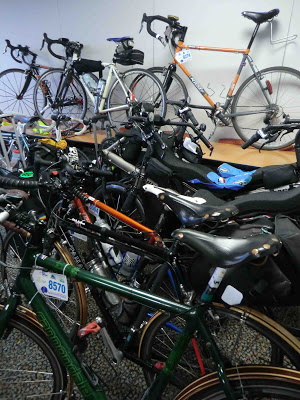 Bikes in stored in hotel conference room
Bikes in stored in hotel conference roomLodging on the Course —
The event provides eating and sleeping facilities at the controls. Sleeping is usually on mats or cots in school gymnasiums or in dormitories. Event staff will even wake you up at the time you give them. The price is nominal, but you may have to wait for a sleeping spot.
Some riders choose to book a room in a hotel in one or more control town, or in between controls. The advantage is you have your own room and shower, and may have your bike and all your baggage at hand. You will need to travel to and from the hotel, however, taking your dropbag if you have arranged for one at the location. Finally, booking hotels means deciding beforehand where on the course you will be taking a sleep break.
Dropbag Service —
The event does not provide a dropbag service. However, as in year's past Des Peres Travel provides dropbag service at several controls. They also provide travel packages including flight, lodging, and transport to/from the airport.
Pre-Registration —
If you rode an ACP-sanctioned event in 2014, you may pre-register, with a starting date based on your longest ACP-sanctioned brevet (or Randonneurs Mondiaux 1200k). You pay a non-refundable deposit. Pre-registration for the longest-event finishers starts April 26. Pre-registering puts you on a priority list, in case more riders register than the event can accommodate. The earlier you pre-register, the higher on the list. You still have to qualify and register.
Qualifying —
You must complete ACP-sanctioned 200km, 300km, 400km, and 600km brevets by July 7. You can ride them in any order. You can also substitute longer brevets for shorter ones.
Colorado Qualifying Brevets — The Colorado brevets you can use to qualify for PBP span April through June:
» 200k - three in April, Kersey Kick, Falcon, and Rawhide.
» 300k - two in May, Black Forest and Poudre Canyon.
» 400k - three - the "early bird" in May, two in June.
» 600k - two - the "early bird" in May, the other in June.
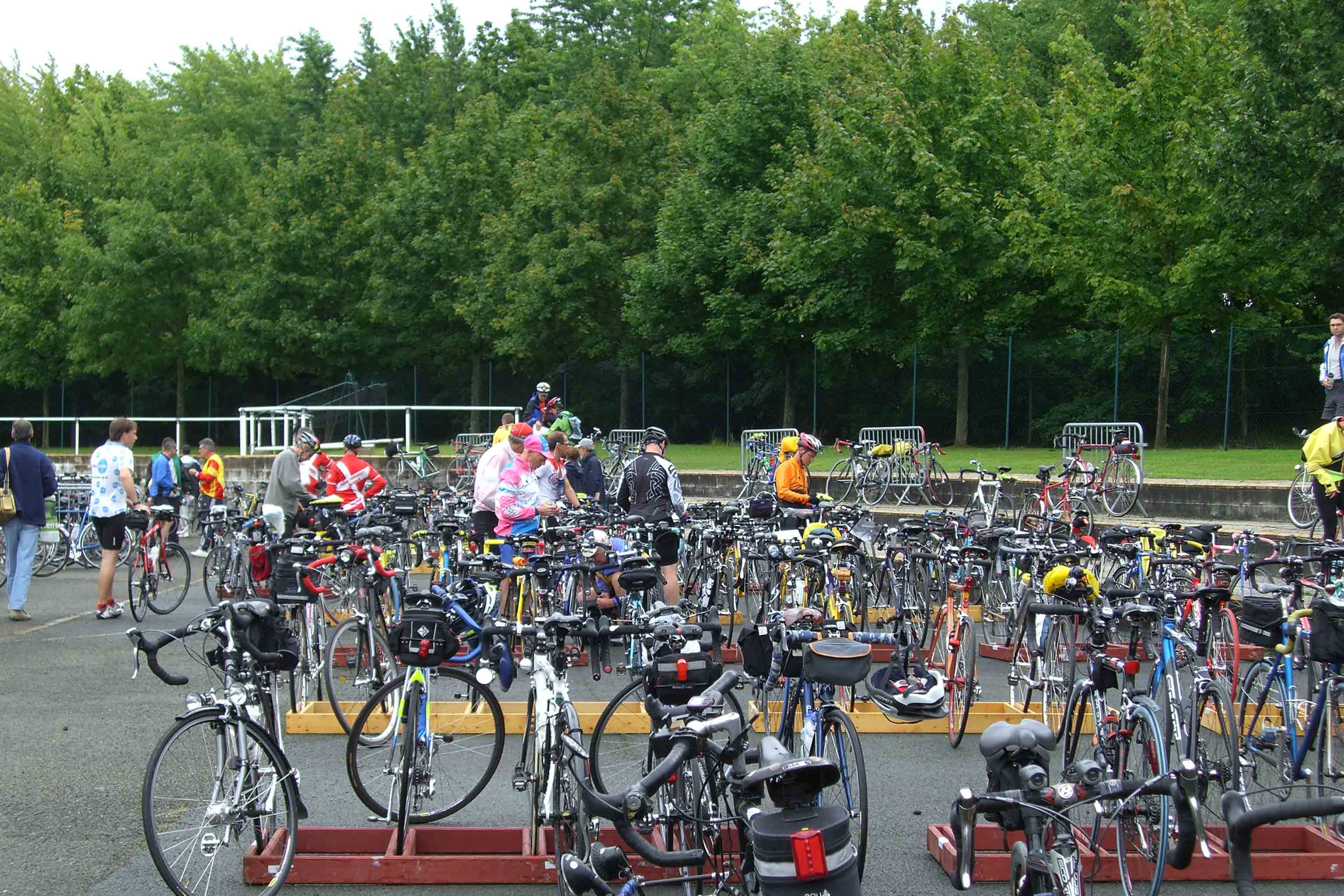 Bikes at the gymnasium while riders get their packets and trinkets.
Bikes at the gymnasium while riders get their packets and trinkets.Registration —
Once you've completed at least three of your qualifying rides, you can register starting May 31. If you've pre-registered, you get priority on spaces available in the event. You will choose a start group, which in general you can't change. This is an important choice, as it determines how long you have to finish, and whom you will be riding with.
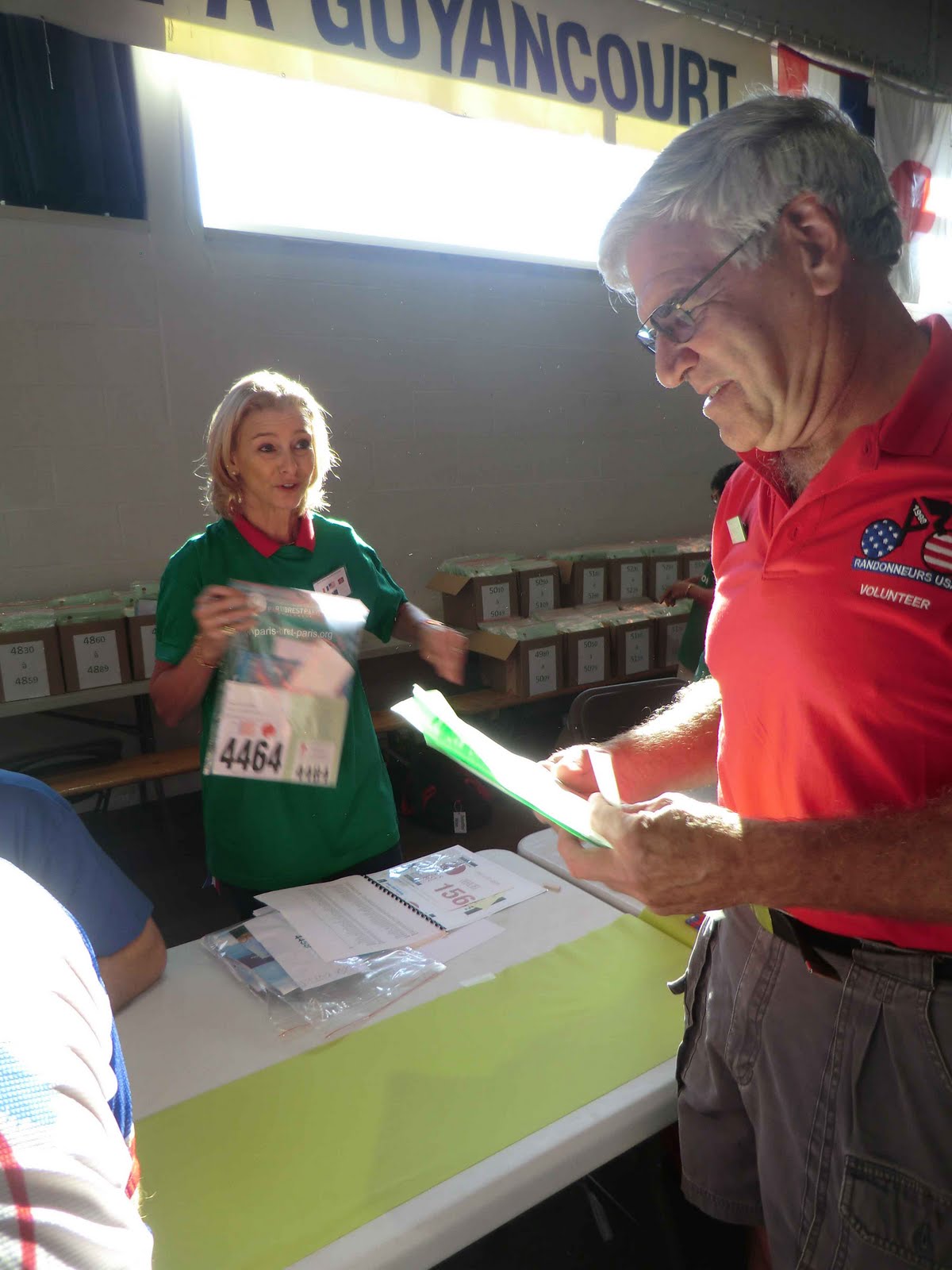 RUSA Members #1 and #9 - Jennifer Wise and Pierce Gafgen -
RUSA Members #1 and #9 - Jennifer Wise and Pierce Gafgen -
help Americans with sign-in in 2011.
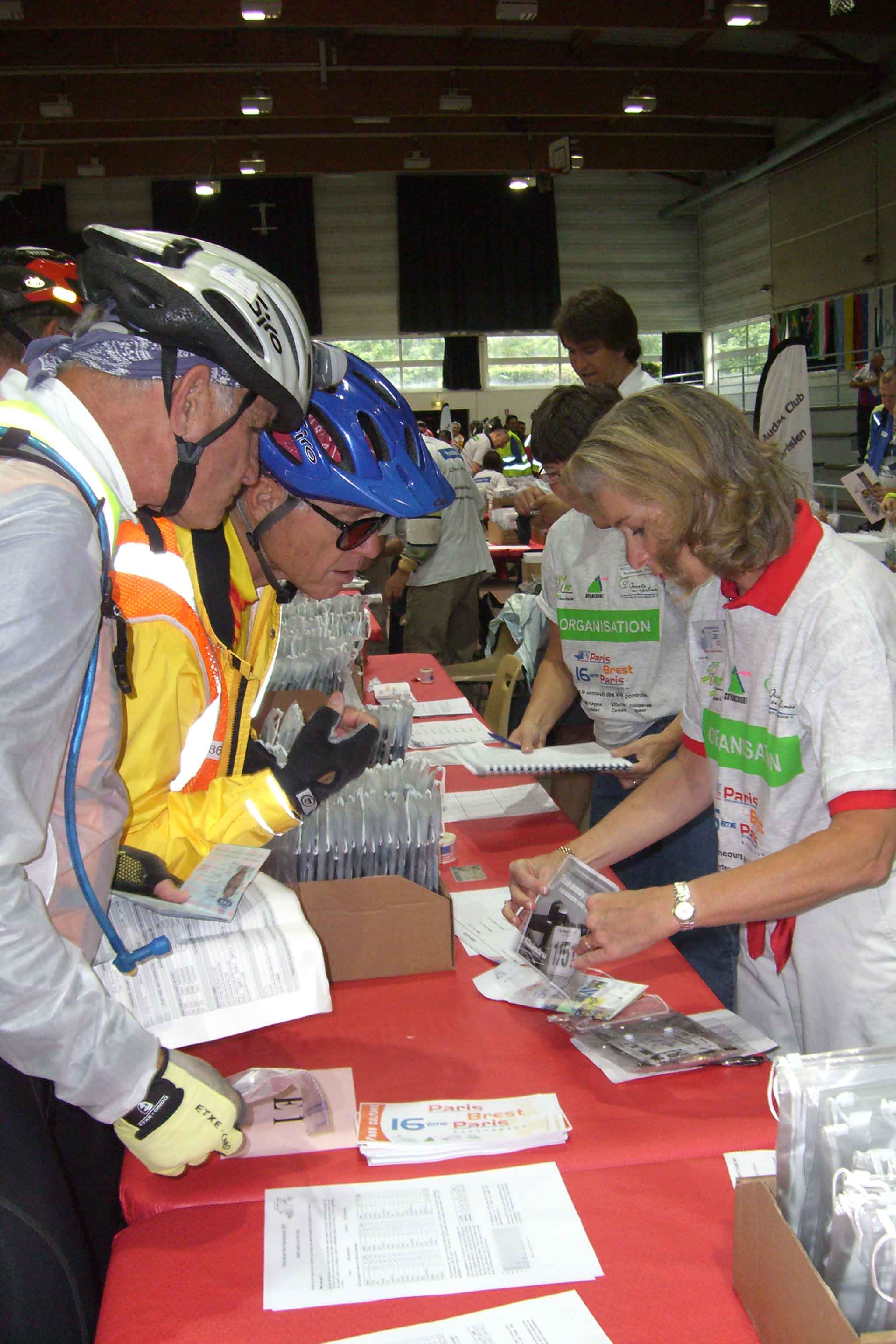 PBP anciens Charlie Henderson and Rex Farnsworth
PBP anciens Charlie Henderson and Rex Farnsworth
sign in with Jennifer in 2007.Choosing a Start Time —
An important decision — There are three main start groups. Each gives you a different amount of time to finish. It's not just about how fast you think you can ride, or how leisurely you plan to; it's also about the groups you think you'll be riding with, and with whom you'll contend for resources.
» The 80-hour start group (waves starting at 4pm on 8/16) are traditionally for folks looking for a fast time who could benefit from riding in a peloton of others similarly minded. You'll face smaller crowds (at least outbound), but deal with more adrenaline, so you have to balance that with the risks. Keep in mind that - as with any randonnée - your top goal is to finish. Remember, also, not to judge your PBP goals based on your 600k time: at PBP, many things take more time.
» The 90-hour start group (waves starting at 6pm on 8/16) is the most populous. You may face a long wait to start among the waves of starters, and a kind of molasses experience the first 2-3 hours heading out from Paris. But you have the 90-hour buffer. And if you're efficient at stops and not a slow rider, you can get ahead of the crowds. As with the 80-hour riders, you will be riding through the first night. There are strategies for dealing with that.
» The 84-hour start group (waves starting at 5am on 8/17) seems the most congenial for riding more in daylight, with only two hours of darkness to start with. It's a much smaller group, making for an easier start. The caveats are (1) you will be catching up with the slower 90-hour riders by evening and contending with them for eating and sleeping spots and (2) you need to calculate when you aim to finish. It could mean cycling through the final night. That might be fine, or may be not what you're looking for. Example: Finishing in 72-75 hours, you will traverse as many dark hours as 90-hour starter.
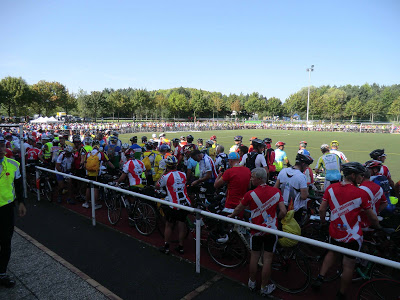 6pm 90-hour start in 2011
6pm 90-hour start in 2011Choosing Your Start Wave — New for this year, you will need to choose a wave within your start group. We're not sure how this will work, but could mean shorter waits for most everyone, as you can show up to the departure venue close to when your wave is to leave, rather than hours before.
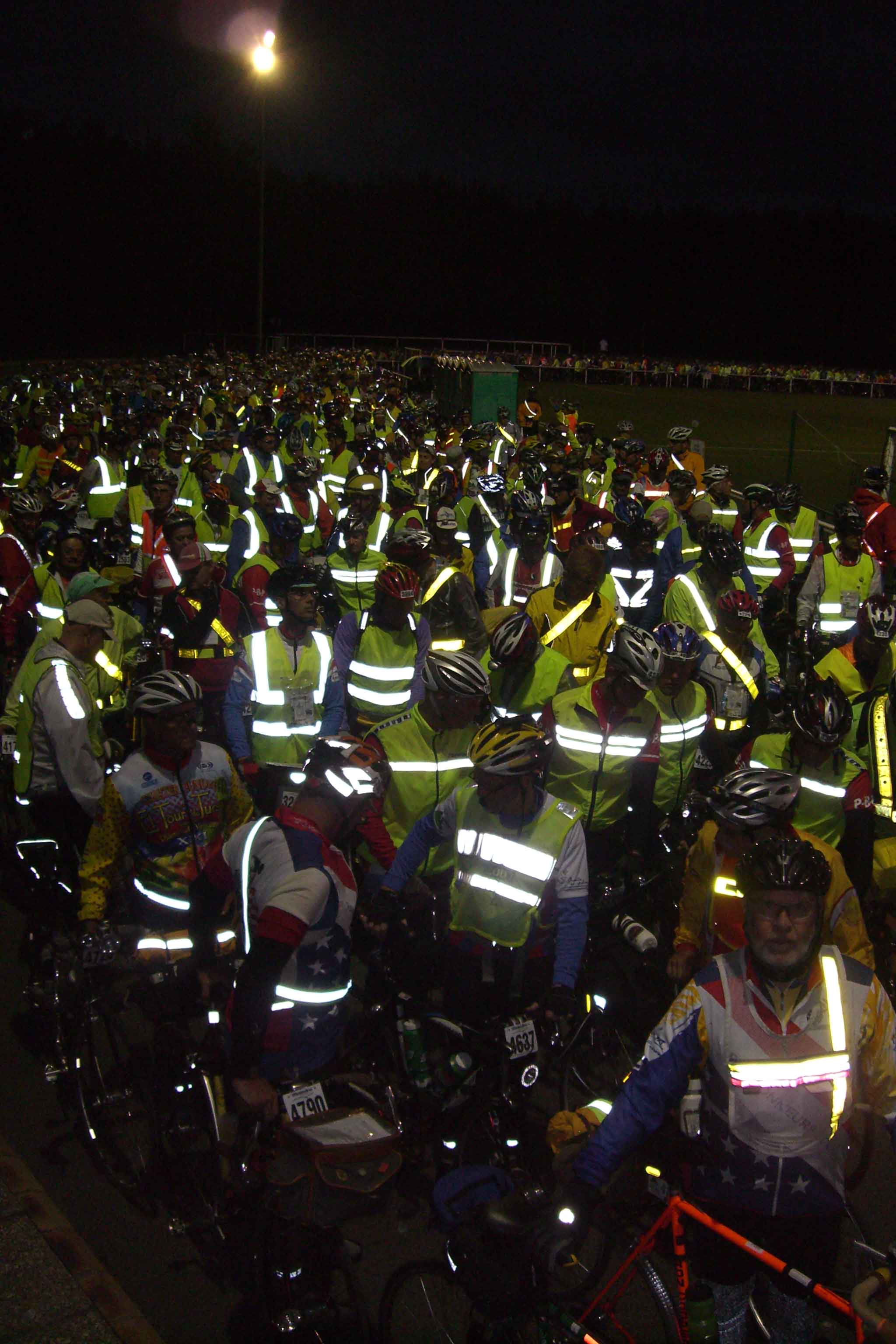 Nighttime 90-hour start in 2007
Nighttime 90-hour start in 2007Reflective Gear —
PBP requires a reflective vest certified by a Euro norm. The ACP supplies one in your registration packet, and in the past the RUSA store has carried some, too, in case you want to try out the vest beforehand. The 400k and 600k brevets are good opportunities to test out your vest, ankle bands, reflective tape and other reflective gear.
Lighting —
You'll need a lighting system that is reliable and also redundant (in case your primary system breaks down, whether it's battery or dynamo-powered). For battery-powered lights, assess how long your batteries will last at a given intensity. Remember if you take the 80- or 90-hour start, you will be cycling through the entire first night (about ten hours of darkness). A 400k or 600k brevet may not be an adequate test for that scenario. If you are using non-rechargeable batteries, plan how to resupply yourself from dropbags. (Don't rely on stores en route.) If you are relying on rechargeable batteries, remember that the voltage and receptacles are different in France, and unless you've booked a hotel room, you may not have a spot to plug your batteries or other devices into.
On-Bike Baggage —
Some riders carry a lot of food, clothing, tools and other equipment. Others have learned ways to carry relatively little and still be prepared. Whichever style you fall into, check out your on-bike baggage system on the longer brevets. Many riders don't carry appreciably more or different things on a 1200k than they would on a 600k (climatic differences between events aside).
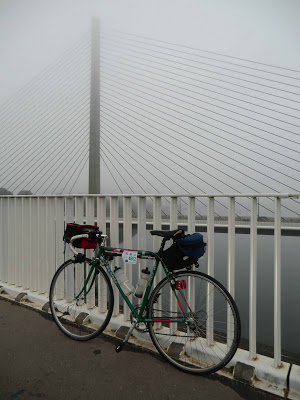 JLE's De Rosa coming into Brest.
JLE's De Rosa coming into Brest.
Moderate baggage can suffice.
Passport —
If you're a US citizen, make sure your passport is up to date. The process to apply for or renew a passport can take a while (weeks), so if you need to, get this done as early as you can.
French Language —
Many will advise you that even a few French phrases go a long way. And it's true! You may not be dealing at length with event staff, villagers, and storekeepers, but gracious words (Bonjour madame / monsieur / madamoiselle, si'l vout plait, etc.) will smooth things along and enrich your experience. Also study words and phrases you might see on menus and traffic signs ("Direction xyz" is pretty obvious; "virage" and "déviation" might be a good words to learn, and "interdit.") In short, the typical travel vocabulary, plus terms for bike parts.
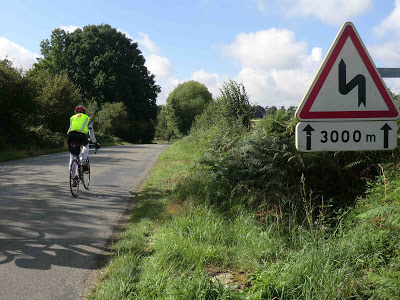 Virage ahead!
Virage ahead!
|
Should I Ride a Brevet Week? —
Brevet weeks - where you can ride all qualifying distances in a single week - can be helpful if you do not live near qualifying events (and thus save on travel costs), or if you like the challenge and camaraderie of a week's immersion in brevets. But there's a risk if for whatever reason - fatigue, illness, mechanical problem - you don't complete the entire series. In that case, you'd want the brevet week to be early enough that you could find make-up brevets elsewhere if needed.
The fatigue of riding 1500km in a week may be instructive. But as physical training, less useful than the ride/recovery cycle of brevets spread out over several weeks. Finally, especially as brevet weeks tend to be fairly early in our season, you risk overuse injuries, which can persist through the rest of the season on up to PBP.
Should I Ride Brevets in Different Regions? —
Every region is different in terms of how the events are run, what the terrain and services are like, etc. So it's a great learning experience to ride outside your local area. Plus you get to meet other randonneurs, learn from them, and make friends, some of whom you may see at PBP!
Should I Ride My 600k Straight Through? —
If you're planning to take your first sleep break in Brest, this would be good practice. Otherwise, it's not necessary. Remember, your top goal in riding the qualifiers is to qualify. Also, taking a sleep break on the 600k clues you in to how to regroup, limber up stiff muscles, and get on the road again after a break.
Should I Ride a 1000k Brevet? —
Historically, riding a 600k brevet has been good enough training for the first-time 1200k rider. However, a 1000k is a great idea if you have the time, if the course is interesting and evocative, and if it's an adventure done on its own merits. It's a useful volume of training, and is required for the RUSA Cup and the ACP Randonneur 5000 award.
Should I Use Fenders? —
Fenders have no longer been required since 1991. They certainly came in handy for riders during the wet PBP'07. But there have been very dry, sunny years, too (and more often than not). If you are fine with fenders and have a good setup, go with that. If you are ok in wet weather without them, that's fine, too. Most important is whether you plan to ride with others - either with dedicated friends or in random groups. In that case, having fenders in wet weather could be considered de rigueur so as not to splatter your comrades.
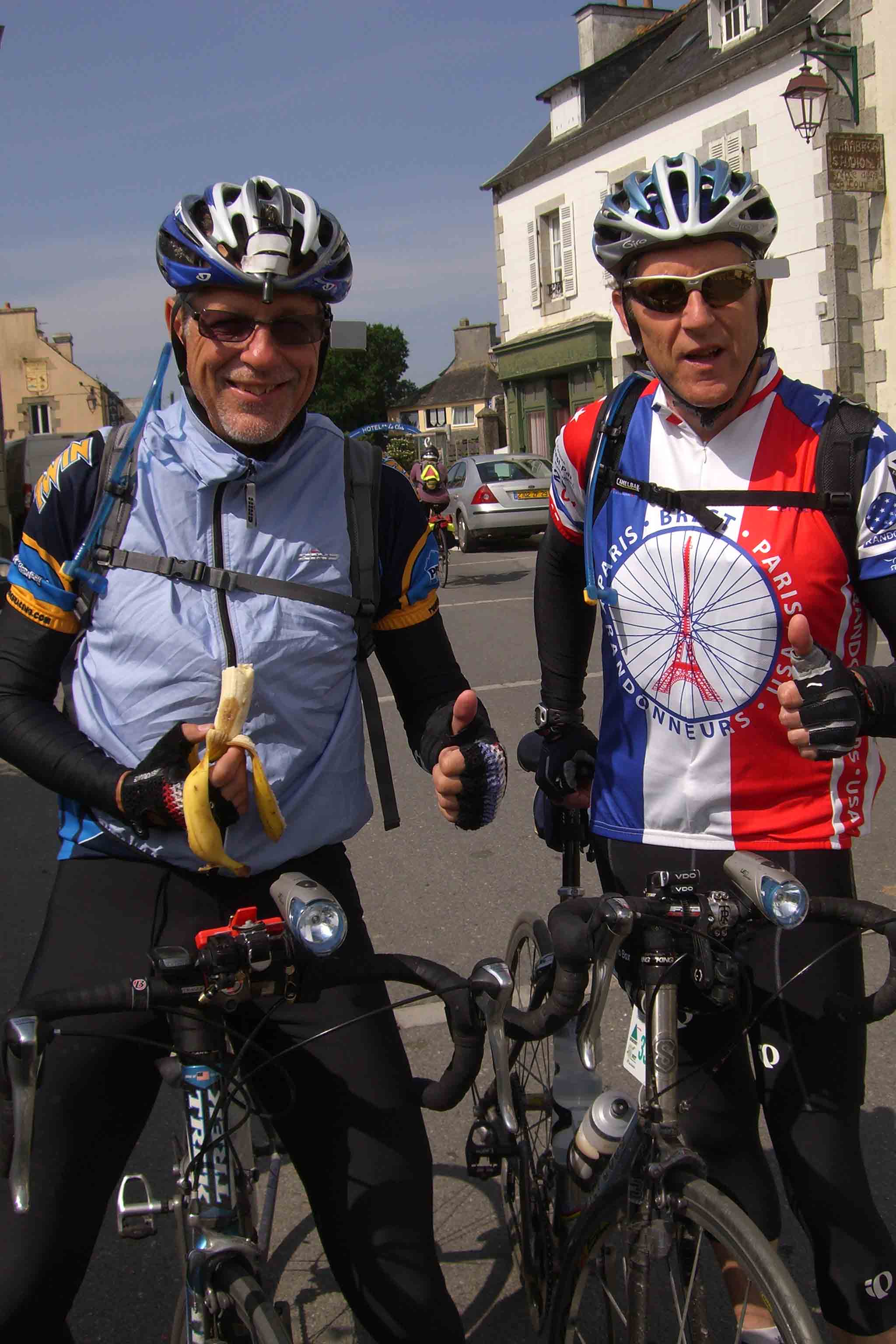 Colorado randonneurs Gary Koenig and Dick Wiss in Sizun
Colorado randonneurs Gary Koenig and Dick Wiss in Sizun
Even rainy PBP'07 had sunny periods. Should I Eat at the Controls? — It depends. PBP controls offer a cafeteria-style setup, and also a "service rapide" place to get take-away sandwiches. Both offer good food with nutritional variety. The cafeterias offer everything from fish and rice to salad and soup. Food at controls can be a good way to renutrify quickly ... if the lines aren't too long. It's something to assess when you arrive. Stores and cafés on the route can be sparse, and not always open when you think they might be. One strategy is to carry some backup food with you, in case you need to skip a control and try for the next one. That and some non-perishable food in your dropbags.
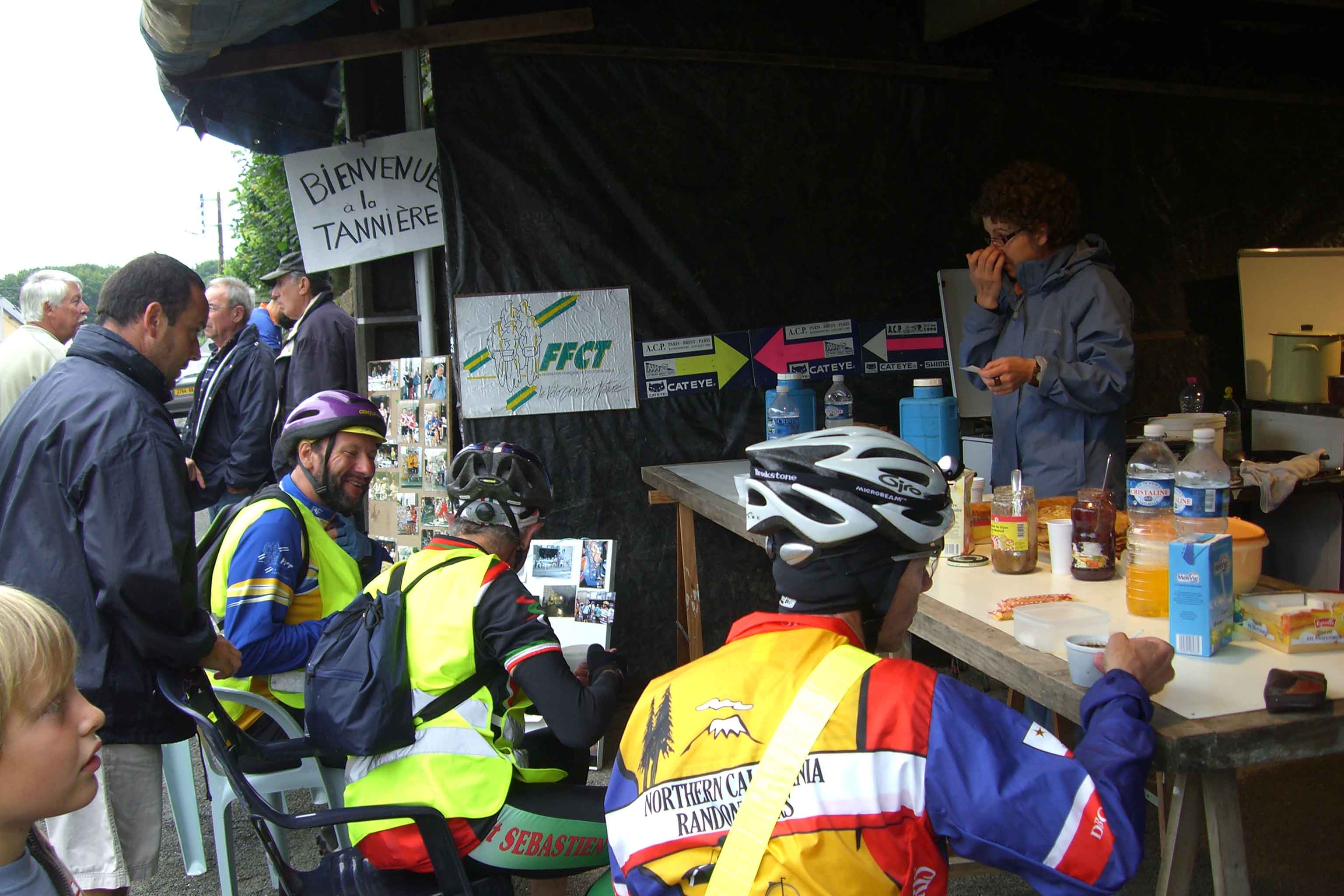 Citizens sometimes erect roadside stands along the route
Citizens sometimes erect roadside stands along the route
like this one in Tannière. Another snack possibility.I Didn't Ride Any ACP Brevets in 2014. Am I Out of Luck? —
It's hard to forecast. There are many factors at work, including economies in various countries, up-and-coming countries with a growth in riders, etc. Not everyone who rode ACP brevets or a 1200k in 2014 is aiming for PBP. And even pre-registrants' plans change. Essentially the same system was in place in 2011, and there was no need for a waiting list. Hard to say if that's a predictor.
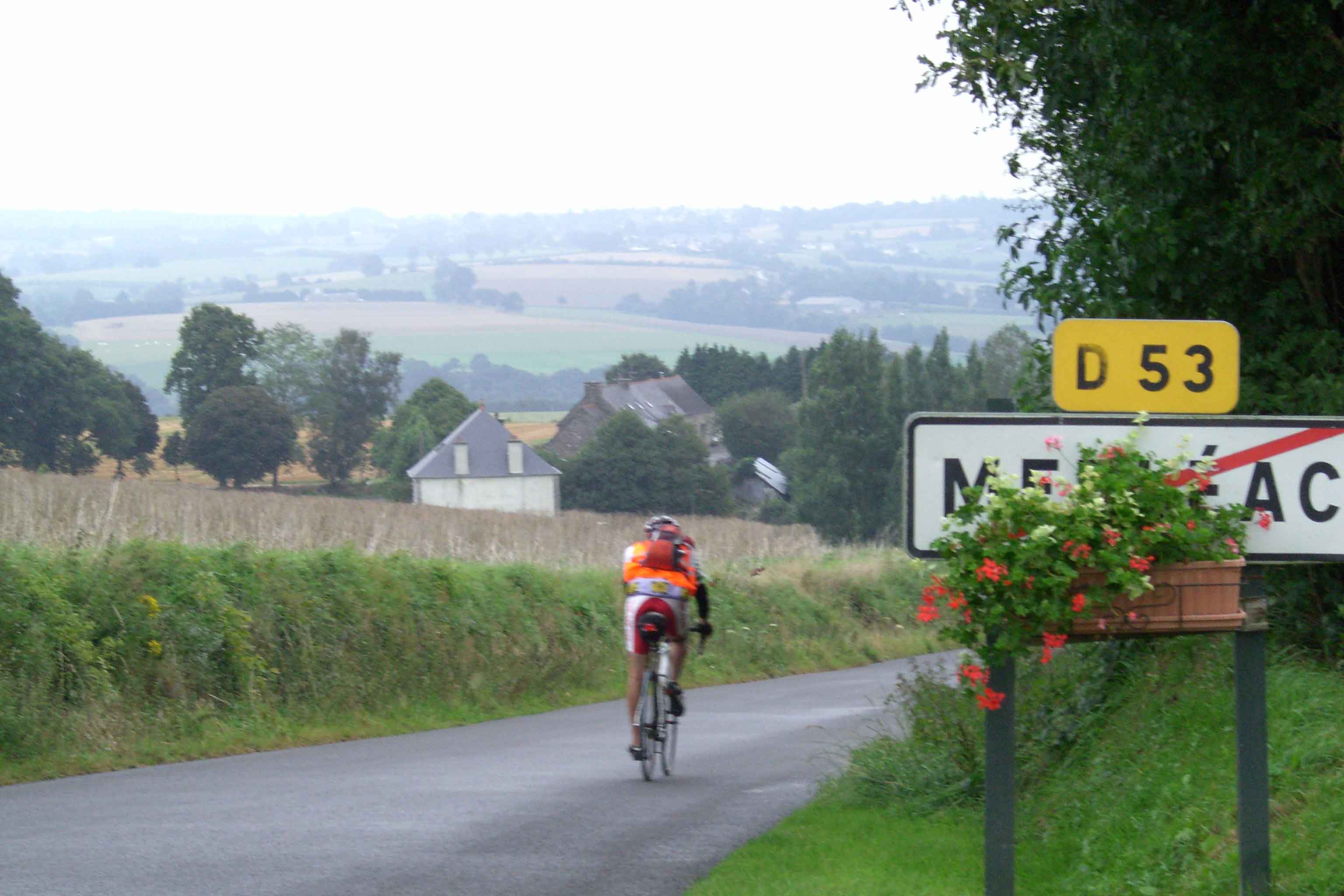 Riding through a flower-adorned village.
Riding through a flower-adorned village.Will I Constantly be Surrounded by Hordes of Riders? —
Much of the time you will have other riders in sight. But - after the initial few hours - it's really your choice whether to ride alone, with a few pals, or with groups of riders from many lands.
|
